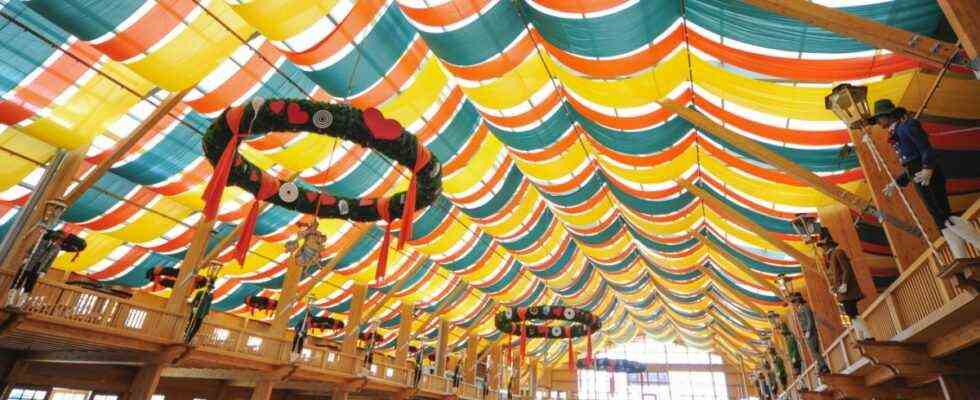At least one thing is undisputed in this process, which is characterized by legal subtleties: The Oktoberfest 2020 did not take place. The judge, the plaintiff and the defendant all agree on this. And there is also unity over the culprit for the failed folk festival: Corona, of course. But then it is quickly over with the agreement between the lawyers of the Schützen-Festzelt Reinbold OHG and those of the Ergo insurance group.
Because the operators of the Schützen festival tent are demanding compensation for the pandemic-related failure of the Oktoberfest from an insurance consortium that protects the company against financial damage in connection with the Oktoberfest and in which Ergo has a 21 percent stake. The sum insured is a maximum of four million euros.
The plaintiff’s argumentation: Reinbold OHG suffered millions of euros in damage as a result of the rejection, and since this was caused by external circumstances – namely the official order according to which the Oktoberfest could not take place due to the pandemic – the insurance must be liable. The Ergo lawyers argue against this: The Oktoberfest was not canceled, only the preparations were canceled at an early stage. Consequently, there is also no insurance claim.
In the trial before the civil chamber at the Munich I district court, no judgment will be given this Friday. But Judge Gol von Hardenberg shows a clear tendency. “I tend to have insurance coverage,” he says in the courtroom – even if the defendants’ arguments are “worthy of all honor”. But the Oktoberfest is an annually recurring event that would only not take place under serious circumstances such as a pandemic. As a result, Reinbold OHG is protected against this scenario.
The difficulty for all parties involved is to determine the amount of the dispute. Because Reinbold OHG has to quantify that, according to Richter von Hardenberg. And for that, the company would have to disclose its figures. So calculate exactly: Which fixed costs have already arisen in advance and how high is the expected profit.
The proceedings are suspended until a judgment is made in a similar case
But precisely these sums are among the best-kept secrets in Munich: How much does an Oktoberfest host really earn in these 16 to 18 days, depending on the holiday constellation? And since the other side, i.e. Ergo, would have to reckon with a defeat in court if the proceedings were continued, Judge von Hardenberg made a suggestion: The proceedings could be suspended until a final judgment was pronounced in a similar case.
Because the operators of Fischer Vroni had also filed a lawsuit against their insurance. In this case, a landmark ruling was recently made, according to which the insurance company is obliged to pay. Only the amount of the sum is not fixed here either. The insurance company has appealed, so there is still no final judgment. Until then, the proceedings for Reinbold OHG can be left to rest, said Richter von Hardenberg.
Then one could orient oneself on the decision in the case of the Fischer Vroni and at best reach an out-of-court settlement. After a brief consultation, both sides accept the judge’s proposal, and it is unclear when and whether the proceedings will be continued.
In addition to the Reinbolds, who have been running the Schützenfestzelt at the foot of the Bavaria since 1980, a number of other Oktoberfest hosts also sued in December 2020: those of the Paulaner festival tent, the Weinzelt, the Schützenzelt, the Armbrustschützenzelt, the Hofbräu festival tent and the Schottenhamel. There was already a collective court appointment in the summer of this year, but it fell through. The Fischer Vroni is therefore practically the pioneer among the plaintiffs. But it can easily be that the financial issue is discussed behind closed doors in all processes. As lawyer Maximilian Ott, who represents Schützen-Festzelt Reinbold OHG, among others, made it clear in the negotiation, Ergo has included a passage in its contract that states that the amount of damage must be clarified in an out-of-court expert procedure.

